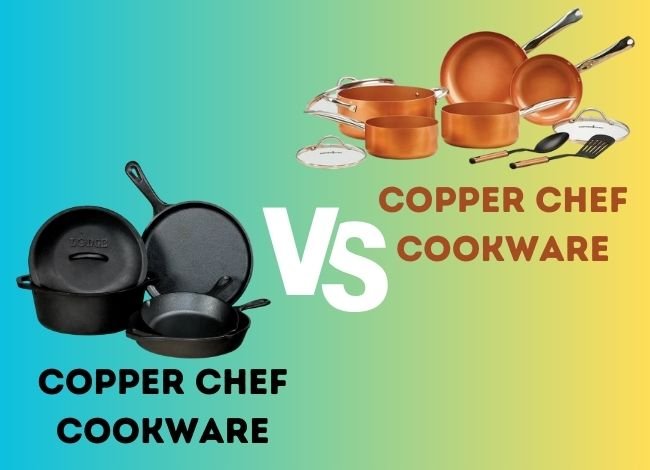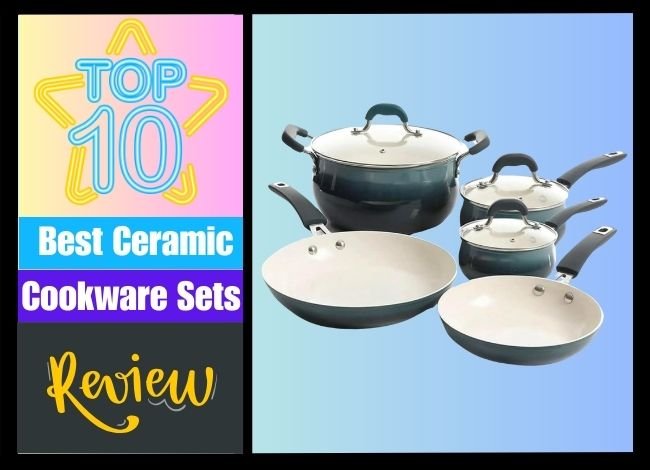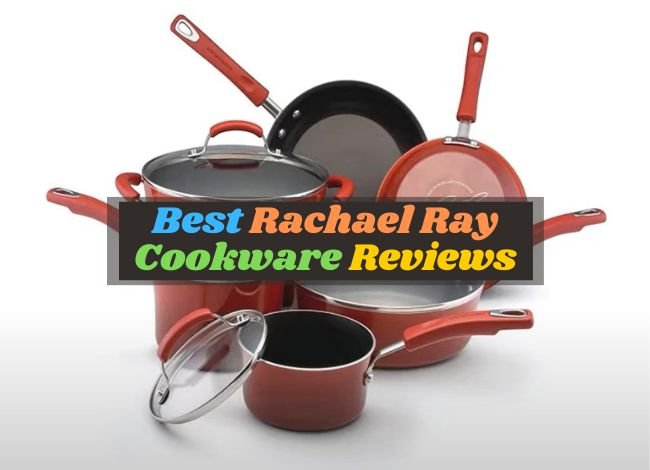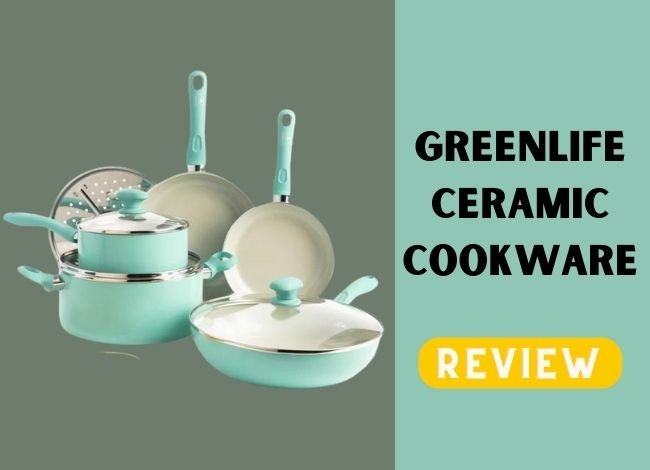Cookware is a crucial aspect of any kitchen, and the right cookware can make a significant difference in the way you cook. With so many options on the market, deciding which type of cookware best suits your needs can be challenging. In this article, we will be comparing Copper Chef, a popular brand known for its copper-infused non-stick cookware, with the time-tested classic, cast iron cookware. We will explore their features, advantages, and drawbacks to help you determine the winner in this culinary showdown.
Copper Chef Overview
Copper Chef is a popular cookware brand that offers a wide range of products, including pots, pans, bakeware, and accessories. The brand’s unique selling point is its copper-infused non-stick coating, which is designed to provide even heat distribution and superior non-stick performance. Copper Chef cookware is also known for its versatility, as it is suitable for use on all stovetops, including induction, and can withstand high oven temperatures of up to 850°F.
Cast Iron Overview
Cast iron cookware has been a staple in kitchens for centuries, and its popularity hasn’t waned. These heavyweight pans are known for their durability, even heat distribution, and excellent heat retention. Cast iron cookware is versatile, suitable for use on all stovetops and in the oven. It can also be used for a wide range of cooking techniques, from frying and sautéing to baking and slow cooking. However, cast iron requires proper seasoning and maintenance to maintain its non-stick properties and prevent rust.
Related Article: Copper Chef vs. Black Diamond Cookware
Comparison Chart: Copper Chef vs. Cast Iron
| Feature | Copper Chef | Cast Iron |
|---|---|---|
| Non-stick coating | Copper-infused | Requires seasoning |
| Heat distribution | Excellent | Excellent |
| Heat retention | Good | Excellent |
| Cookware types available | Pots, pans, bakeware | Pots, pans, bakeware |
| Induction compatible | Yes | Yes |
| Oven safe | Up to 850°F | Unlimited |
| Dishwasher safe | Yes | No (handwash only) |
| Handles | Stainless steel | Cast iron |
| Price range | $$ | $-$$ |
| Maintenance | Low | High (seasoning) |
Advantages of Copper Chef Cookware
- Superior non-stick performance: Copper Chef’s copper-infused non-stick coating ensures that food releases easily, making it easy to clean and cook with little to no added oil.
- Excellent heat distribution: The copper-infused coating provides even heat distribution, reducing the likelihood of hotspots and ensuring consistent cooking results.
- Lightweight and easy to handle: Compared to cast iron cookware, Copper Chef is significantly lighter, making it easier to maneuver during cooking.
- Low maintenance: Copper Chef cookware requires minimal maintenance and can be cleaned in the dishwasher.
Advantages of Cast Iron Cookware
- Exceptional heat retention: Cast iron cookware is known for its ability to retain heat, making it perfect for slow cooking and keeping food warm for extended periods.
- Durable and long-lasting: With proper care, cast iron cookware can last for generations, making it a valuable investment.
- Natural non-stick surface: Once seasoned, cast iron cookware develops a natural non-stick surface that can rival modern non-stick coatings.
- Cost-effective: Cast iron cookware is generally more affordable than Copper Chef cookware.
Drawbacks of Copper Chef Cookware
- Durability concerns: While Copper Chef cookware is built to last, it may not have the same longevity as cast iron cookware, especially with frequent use.
- Potential for the coating to wear off: Over time, the non-stick coating on Copper Chef cookware may wear off, affecting its non-stick performance.
- Price: Copper Chef cookware can be more expensive than cast iron cookware, making it a less budget-friendly option.
Drawbacks of Cast Iron Cookware
- Heavyweight: Cast iron cookware is significantly heavier than Copper Chef cookware, which can make it more challenging to handle, especially when moving from the stovetop to the oven.
- Requires seasoning and maintenance: Cast iron cookware needs to be seasoned regularly to maintain its non-stick surface and prevent rust. It also requires handwashing, as it is not dishwasher safe.
- Takes longer to heat up: Due to its thick construction, cast iron cookware can take longer to heat up compared to Copper Chef cookware.
Related Article: Cast Iron vs Ceramic Cookware
The Winner: Copper Chef vs. Cast Iron
When it comes to deciding between Copper Chef and cast iron cookware, the winner depends on your specific needs and preferences. If you value convenience, lightweight construction, and easy maintenance, Copper Chef cookware is the ideal choice. Its non-stick performance and even heat distribution make it a versatile option for various cooking tasks.
On the other hand, if you are looking for cookware with exceptional durability, heat retention, and a natural non-stick surface, cast iron cookware is the way to go. Its ability to last for generations and withstand high heat makes it an excellent investment for your kitchen. However, keep in mind that cast iron cookware requires regular seasoning and maintenance to keep it in optimal condition.
In conclusion, both Copper Chef and cast iron cookware have their unique advantages and drawbacks. The best choice for your kitchen depends on your cooking style, preferences, and willingness to maintain your cookware. Take the time to evaluate your needs and make an informed decision based on the information provided in this article.
Conclusion
Frequently Asked Questions
Q: Can Copper Chef cookware be used on an induction cooktop?
A: Yes, Copper Chef cookware is designed to be compatible with all cooktops, including induction. It has an induction plate on the bottom that makes it suitable for this type of cooking.
Q: How do you season Cast Iron cookware?
A: Season cast iron by coating it with a thin layer of vegetable oil or shortening, then heat it in an oven at around 350°F for an hour. Let it cool inside the oven. This process should be repeated periodically to maintain the non-stick surface.
Q: Is Copper Chef cookware oven-safe?
A: Yes, Copper Chef cookware is generally oven-safe, but it’s important to check the specific product’s maximum temperature rating, as it can vary.
Q: How do I clean Cast Iron cookware?
A: Clean cast iron with hot water and a stiff brush. Avoid using soap and don’t soak it in water. After washing, dry it immediately and apply a light coating of oil to prevent rusting.
Q: Are there any foods I shouldn’t cook in Copper Chef pans?
A: It’s best to avoid cooking highly acidic foods in Copper Chef pans over long periods, as this can deteriorate the non-stick coating over time.
Q: Why is Cast Iron cookware good for long cooking processes?
A: Cast iron’s ability to retain heat makes it ideal for slow-cooking processes. It distributes heat evenly, making it perfect for stews, braises, and baked goods.
Q: Can Copper Chef cookware go in the dishwasher?
A: While many Copper Chef products are dishwasher safe, hand washing is recommended to extend the life of the non-stick coating.
Q: How does the cost of Copper Chef compare to Cast Iron cookware?
A: Generally, Copper Chef cookware can be more expensive than basic cast iron pieces, but prices vary depending on the brand and specific product features.
Q: Is Cast Iron cookware safe for people with iron allergies?
A: People with iron sensitivities should consult with a healthcare provider before using cast iron cookware, as it can leach small amounts of iron into food.
Q: Can Copper Chef pans withstand high heat cooking?
A: Copper Chef pans can handle relatively high heat, but it’s important to refer to the manufacturer’s guidelines to avoid damaging the non-stick surface.
Q: How does the weight of Copper Chef and Cast Iron cookware compare?
A: Cast iron cookware is significantly heavier than Copper Chef. This can be an important consideration for handling and storage, especially for those with limited strength or mobility.




